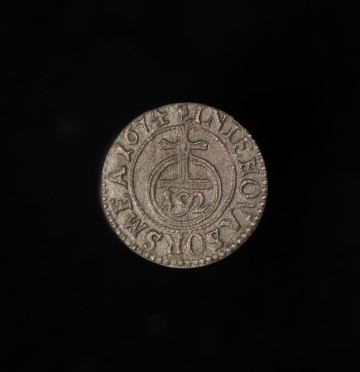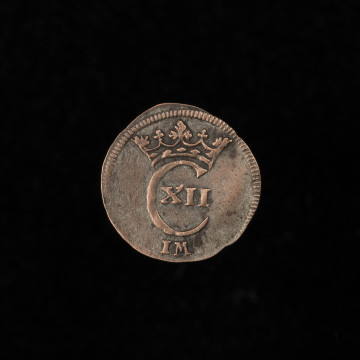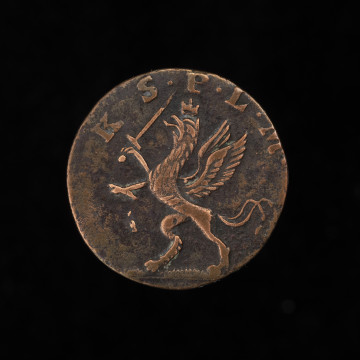
Witten (1/192 of a thaler)
1674
National Museum in Szczecin
Part of the collection: Pomeranian coins
Pomeranian coinage during the reign of Queen Christina (1626–1689) was primarily profit-driven, focusing on the production of large silver coins and gold coins intended for the court and high-ranking military officers. As a result, the mint in Szczecin was established in 1640, even before the Peace of Westphalia (1648) formally ended the Thirty Years’ War and confirmed Swedish rule over Western Pomerania. Coins were struck according to the Reich’s 1559 minting standard. The smallest denomination in this system, the billon witten, was introduced into circulation only in 1650, with intermittent issues in 1651 and 1654. Although the scale of production remains unknown, the rarity of surviving coins suggests that it was relatively low. Rising silver prices in Europe led to a reduction in the precious metal content of small coins, while simultaneously driving up general prices. As a result, the population increasingly refused to accept debased money, favouring barter instead. The Szczecin mint was managed at the time by Ulrich Bütkow, a renowned and experienced master of minting from the reign of Bogislaw XIV (1580–1637). In terms of design, *wittens* continued the Pomeranian tradition for this denomination and maintained a high standard of craftsmanship. The obverse features a crowned Pomeranian griffin alongside Christina’s royal and ducal titles. The reverse bears the coin’s name and its value, equivalent to 1/192 of a thaler. Genowefa Horoszko
Author / creator
Object type
coin
Technique
coining
Material
silver
Origin / acquisition method
acquisition
Creation time / dating
Creation / finding place
Owner
The National Museum in Szczecin
Identification number
Location / status

1674
National Museum in Szczecin

1707
National Museum in Szczecin

1792
National Museum in Szczecin
DISCOVER this TOPIC
Museum of King Jan III's Palace at Wilanów
DISCOVER this PATH
Educational path